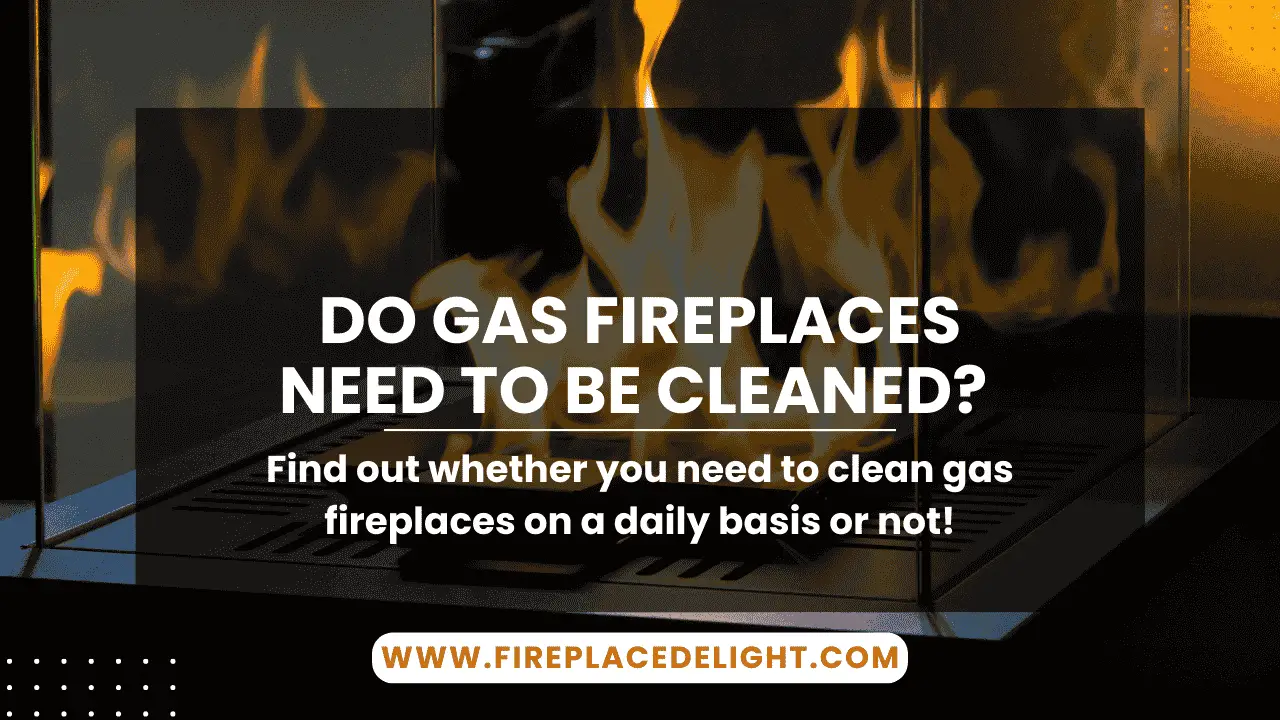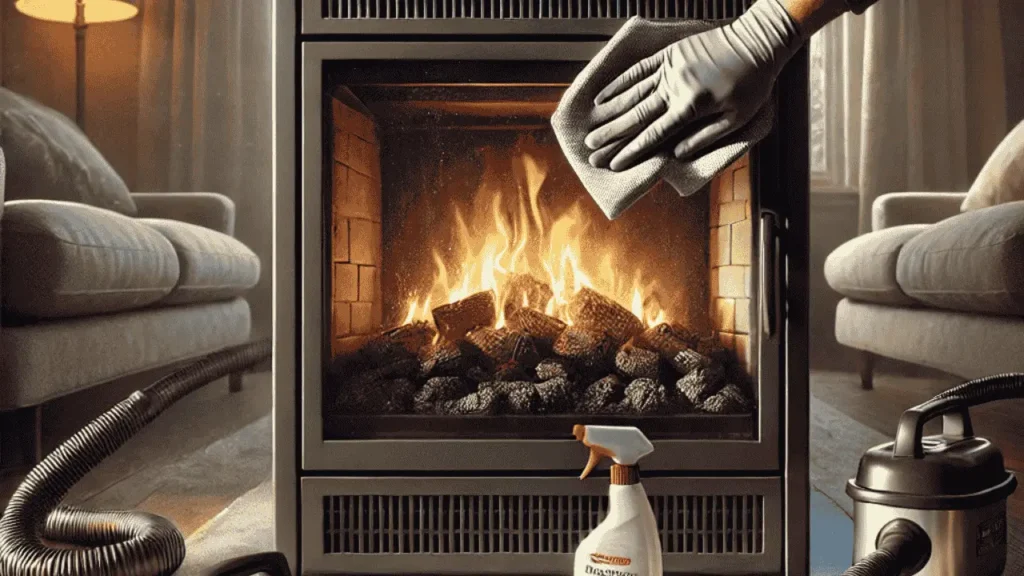If your gas fireplace is looking a little grimy or isn’t burning as efficiently, it’s probably time for a good cleaning. I know it’s easy to forget since gas fireplaces are low-maintenance, but regular cleaning is key to keeping them running smoothly. In this guide, we’ll explore why cleaning is necessary, how to do it yourself, and when to call in a professional for help. Let’s dive into simple steps to keep your fireplace looking great and working efficiently!
Do You Really Need to Clean Your Gas Fireplace?
Yes, gas fireplaces do need to be cleaned regularly, even though they burn cleaner than wood fireplaces. Over time, soot, dust, and debris can accumulate on the glass, logs, and burner, affecting both the appearance and efficiency of your fireplace. Cleaning helps ensure proper airflow, reduces the risk of malfunctions, and keeps your fireplace running smoothly. Regular maintenance also extends the life of the unit and prevents costly repairs down the line. Even though gas fireplaces are low-maintenance, a little cleaning goes a long way in keeping them safe and functional.
Chimney and Venting Concerns
While gas fireplaces produce fewer emissions than wood-burning ones, vented models still require regular checks of the chimney or vent system. Blockages or buildup in the vent can restrict airflow and affect the fireplace’s performance. Ensuring that the chimney is clean helps maintain proper ventilation and reduces safety risks like carbon monoxide buildup.
Gas Log and Burner Issues
Soot and debris can accumulate on gas logs and burners over time, which can impact how well the flames burn and how heat is distributed. Cleaning the logs and burner regularly ensures the gas flows properly and keeps your fireplace burning efficiently, without any obstructions that could cause uneven flames or shutdowns.
How to Clean Gas Fireplace
Cleaning your gas fireplace is simpler than you might think, and regular maintenance can keep it running efficiently. Let’s break down the steps, starting with the glass, which often accumulates the most dirt and soot.
Step 1: Turn Off the Fireplace
Before cleaning, make sure the fireplace is completely turned off and cool to the touch. I always wait at least an hour after use to ensure safety while cleaning.
Step 2: Use a Fireplace Glass Cleaner
Grab a non-abrasive fireplace glass cleaner. Apply it to the glass and wipe it down with a soft cloth, using circular motions. This removes any soot buildup and clears the glass, making it easier to enjoy the flames.
Step 3: Wipe Down the Surrounding Areas
Once the glass is clean, wipe down the surrounding metal and any exposed areas with a damp cloth. This helps keep the entire fireplace area looking tidy and prevents dust buildup from affecting performance.
Should I Have My Fireplace Professionally Cleaned?
While regular cleaning of your gas fireplace can be done at home, it’s recommended to have a professional inspection and deep cleaning at least once a year. Professionals can check for issues like gas leaks, vent blockages, or worn-out parts that may not be obvious during routine cleaning. They can also perform a thorough inspection of the burner, thermocouple, and other critical components to ensure your fireplace is running safely and efficiently. A professional cleaning helps maintain the longevity of your unit and gives you peace of mind, knowing everything is in working order.
Bottom Line
Yes, gas fireplaces need regular cleaning to ensure they run efficiently and safely. Simple tasks like cleaning the glass and logs can be done at home, while an annual professional inspection helps catch potential issues early. With regular maintenance, your gas fireplace will continue to provide warmth and comfort for years to come!
- 27 Farmhouse Fireplace Ideas That Bring Warmth & Charm - August 18, 2025
- 25 Fireplace Lighting Ideas to Illuminate Your Hearth - August 7, 2025
- How to Replace an Electric Fireplace Switch? - August 5, 2025



